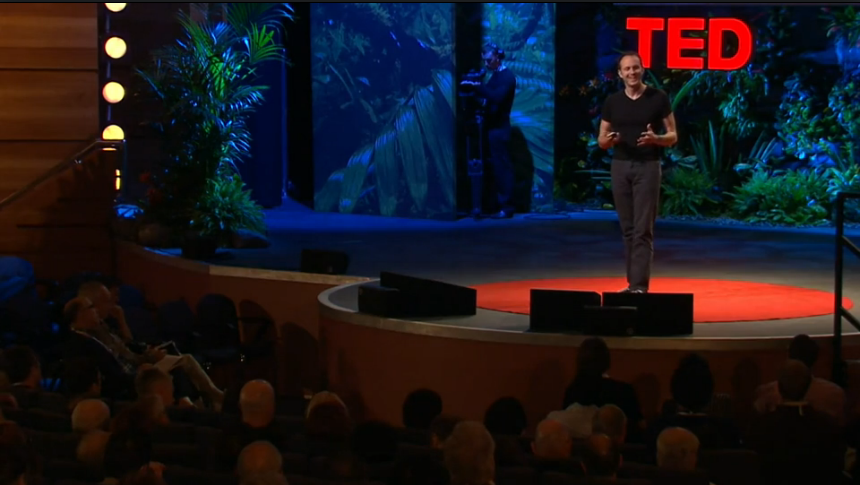How do you do it? Well you have this great big tank full of liquid detergent.
你怎么做呢? 你有这么一大池子的液体清洁剂。
You pump it at a high pressure through a nozzle. You create a spray of detergent.
你用高压将它压过一个喷嘴,你制造了清洁剂喷雾。
Then the spray dries. It turns into powder. It falls to the floor.
喷雾干燥后就成了粉末,掉在地板上。
You scoop it up. You put it in cardboard boxes. You sell it at a supermarket.
你将它铲起,放入一个纸板盒子里。你到超市去卖。
You make lots of money. How do you design that nozzle? It turns out to be very important.
你可以赚好多钱。你怎么设计喷嘴,结果这个很重要。
Now if you ascribe to the God complex, what you do is you find yourself a little God.
如果你倾向于用万能神力来解决这个问题。
You find yourself a mathematician; you find yourself a physicist -- somebody who understands the dynamics of this fluid.
你会觉得自己是个小上帝,你会发现自己是个数学家,物理学家,是一个懂得液体动态的专家。
And he will, or she will, calculate the optimal design of the nozzle.
他或者她会计算管口的最佳设计方案。
Now Unilever did this and it didn't work -- too complicated. Even this problem, too complicated.
联合利华这么做了,但是失败了,太复杂了。即使是这样的问题,也太复杂了。
But the geneticist Professor Steve Jones describes how Unilever actually did solve this problem -- trial and error, variation and selection.
但是遗传学家史蒂文琼斯教授,讲述了联合利华其实是怎样解决这个问题的。

You take a nozzle and you create 10 random variations on the nozzle.
试验和失败,改变和选择,你拿一个管口,你随机地做出10个不同的管口。
You try out all 10; you keep the one that works best.
你测试这10个管口,你把最好的那个保留下来。
You create 10 variations on that one. You try out all 10. You keep the one that works best.
你再拿这个做基础再做10个不同的管口,你测试这10个,你把最好的保留下来。
You try out 10 variations on that one. You see how this works, right?
你再这个基础上测试10个,你知道这是怎么做出来的了吧?
And after 45 generations, you have this incredible nozzle.
经过45轮测试后,你们就得到了这个很好的喷嘴管口。
It looks a bit like a chess piece -- functions absolutely brilliantly.
这个看上去有点象国际象棋棋子——工作起来绝对高效。












